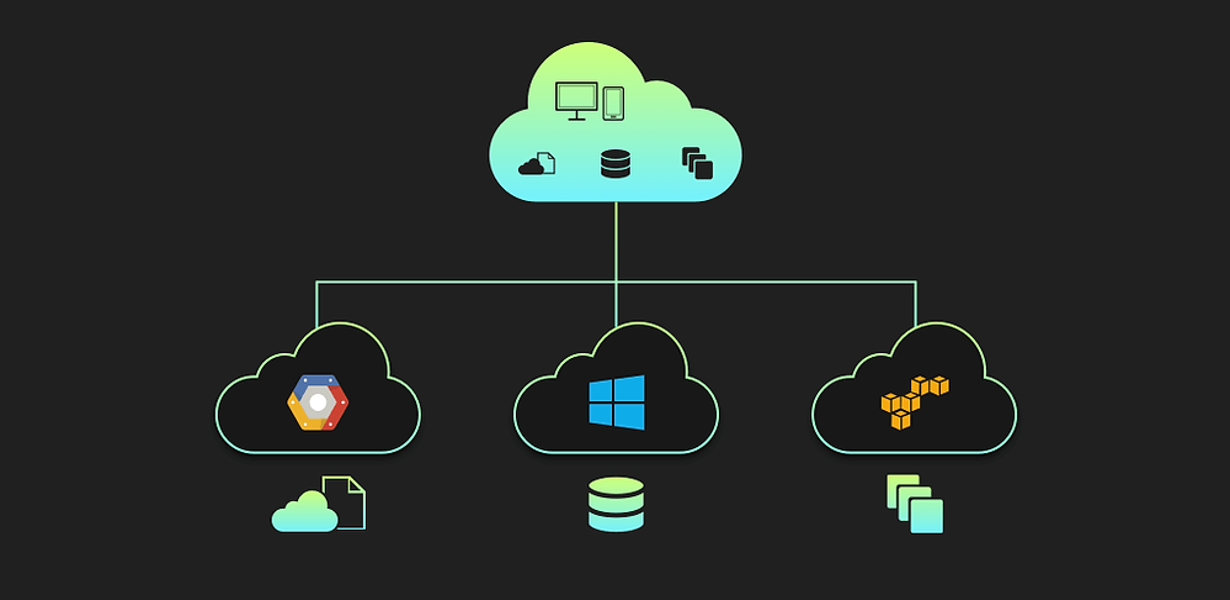
In today’s dynamic digital landscape, businesses are seeking ways to fortify their operations against disruptions. The answer lies in adopting a multi-cloud strategy. This approach involves utilizing multiple cloud service providers to distribute workloads, applications, and data across various platforms. By doing so, businesses can enhance their resilience, scalability, and security. Let’s delve into the intricacies of multi-cloud strategies and how they can empower your business for the challenges of tomorrow.
Understanding Multi-Cloud: A Holistic Approach
Embracing a multi-cloud strategy involves leveraging a combination of public, private, and hybrid clouds. This approach offers flexibility and mitigates dependency on a single cloud provider. Each cloud serves a specific purpose, catering to different aspects of your business operations.
The Benefits of Diverse Cloud Services
Resilience: Distributing workloads across multiple clouds minimizes the risk of downtime in case of a provider outage. This ensures uninterrupted service delivery to your customers.
Scalability: Different cloud providers offer varying levels of scalability. Utilizing a combination allows you to scale resources according to your specific needs, optimizing costs and performance.
Enhanced Security: Multi-cloud environments enable you to implement a defense-in-depth strategy. This involves layering security measures across various providers, adding an extra layer of protection.
Compliance and Data Sovereignty: Different regions have different data compliance regulations. Utilizing multiple clouds allows you to host data in compliance with local laws, reducing legal risks.
Choosing the Right Cloud Hosting Provider
Selecting the right cloud hosting provider is paramount for the success of your multi-cloud strategy. Here are key factors to consider:
Performance Metrics: Evaluate the provider’s uptime, latency, and overall performance history to ensure it meets your business requirements.
Service Level Agreements (SLAs): Thoroughly review SLAs to understand the level of service you can expect, including uptime guarantees and support availability.
Security Measures: Assess the provider’s security protocols, including encryption, access controls, and compliance certifications.
Cost Structure: Compare pricing models, considering factors like pay-as-you-go, reserved instances, and potential hidden costs.
Integration Capabilities: Ensure the provider’s services can seamlessly integrate with your existing infrastructure and applications.
Overcoming Challenges: Governance and Management
While multi-cloud strategies offer immense benefits, they also introduce complexities in terms of governance and management. Implementing robust cloud management tools and establishing clear governance policies are crucial steps in ensuring seamless operations.
Final Words
Embracing a multi-cloud strategy is not just a trend, but a strategic imperative for businesses aiming to thrive in today’s fast-paced digital landscape. By harnessing the power of diverse cloud services, you fortify your operations, ensuring resilience, scalability, and security. Remember, the key lies in choosing the right providers and implementing sound governance practices. Embrace the multi-cloud revolution and lead your business towards a future of unparalleled agility and stability.
Commonly Asked Questions
Q1: How does a multi-cloud strategy enhance security?
A1: A multi-cloud approach distributes workloads across different providers, adding layers of security. This includes diverse security protocols, reducing the risk of a single point of failure.
Q2: Can I use different cloud providers for different purposes?
A2: Absolutely! Each cloud provider offers unique strengths. Utilize public, private, and hybrid clouds based on your specific needs, whether it’s for scalability, compliance, or cost-efficiency.
Q3: What challenges should I anticipate when implementing a multi-cloud strategy?
A3: Governance and management complexities are common challenges. Establishing clear policies and utilizing robust management tools are crucial for seamless operations.
Q4: How can I ensure compliance with local data regulations in a multi-cloud environment?
A4: By strategically selecting cloud providers with data centers in the desired regions, you can ensure compliance with local data sovereignty laws.
Q5: Is a multi-cloud strategy suitable for businesses of all sizes?
A5: Yes, whether you’re a small startup or a large enterprise, a multi-cloud strategy can be tailored to meet your specific needs, providing flexibility and resilience.
Advertisement







